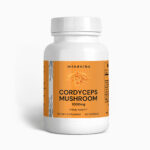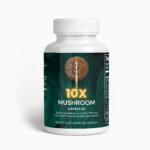
“Coping with Celiac Disease: The Role of Supplements”
Celiac disease is a condition that affects millions of people worldwide. It is an autoimmune disorder that causes damage to the small intestine when gluten, a protein found in wheat, barley, and rye, is consumed. Living with celiac disease is not easy and requires significant lifestyle and dietary changes. In addition, individuals with celiac disease often experience nutrient deficiencies due to intestinal damage, leading many to turn to supplements as a means of supporting their overall health. In this article, we will explore the role of supplements in coping with celiac disease and discuss their potential benefits and drawbacks. We aim to provide readers with evidence-based information that will help them make informed decisions about incorporating supplements into their celiac disease management plans.
1. Introduction: Understanding the Challenges of Celiac Disease
Celiac disease is a genetic autoimmune disorder that affects approximately 1 in 100 people worldwide. This disease is characterized by damage to the small intestine when gluten, a protein found in wheat, barley, and rye, is ingested. When a person with celiac disease consumes gluten, their immune system responds by attacking the villi in their small intestine, which can lead to a variety of symptoms including abdominal pain, bloating, diarrhea, and weight loss.
One of the challenges of celiac disease is that it often goes undiagnosed or misdiagnosed. Since the symptoms can mimic those of other digestive disorders, it can be difficult to recognize celiac disease as the underlying issue. Additionally, some people with celiac disease may not experience any symptoms at all, further complicating the diagnosis process. This can lead to a delay in treatment, which can cause additional health problems and complications.
Another challenge of celiac disease is the dietary restrictions required to manage the condition. The only treatment for celiac disease is a strict gluten-free diet, which involves avoiding all foods and products that contain gluten. This can be difficult and frustrating for many people, as gluten is present in many common foods and ingredients. It requires a significant lifestyle change and can be particularly challenging for those who enjoy eating out or socializing around food. However, with proper education and support, it is possible to successfully manage celiac disease and live a healthy, fulfilling life.
2. Nutritional Deficiencies in Celiac Disease and the Need for Supplements
Celiac disease is an autoimmune disorder that causes damage to the small intestine when gluten is consumed. Unfortunately, people with celiac disease often experience a wide range of nutritional deficiencies due to decreased nutrient absorption. Common deficiencies include iron, calcium, vitamin D, and B vitamins. It is crucial to address these deficiencies through dietary changes and supplementation.
Iron deficiency is one of the most common deficiencies in people with celiac disease. Symptoms can include fatigue, weakness, and pale skin. Fortunately, iron supplements can help address this deficiency. Additionally, incorporating iron-rich foods such as red meat, liver, and leafy greens into the diet can also be helpful.
Calcium and vitamin D deficiencies are also common in celiac disease. These nutrients are crucial for bone health, and deficiency can lead to osteoporosis. Supplementation with calcium and vitamin D can be helpful, as well as incorporating foods such as dairy, leafy greens, and fatty fish into the diet. Ensuring adequate intake of these nutrients is crucial to prevent long-term health complications.
When it comes to B vitamins, deficiency can lead to a variety of symptoms. For example, deficiencies in vitamin B12 can cause anemia and neurological problems. Supplementation with B vitamins, as well as eating foods such as poultry, fish, and fortified grains, can help address these deficiencies. Addressing nutritional deficiencies in celiac disease is crucial for long-term health. Supplementation and dietary changes can help prevent serious complications down the line and lead to a healthier, happier life.
3. Probiotics and Celiac Disease: Benefits and Options
Benefits of Probiotics for Celiac Disease
Probiotics contain beneficial microorganisms that can improve gut health and promote optimal digestion. For individuals with celiac disease, probiotics can help improve symptoms such as bloating, gas, and diarrhea. Studies have shown that probiotics can help reduce inflammation and repair damage to the intestinal lining caused by gluten exposure. In addition, probiotics can enhance the immune system, which can help reduce the risk of infections.
Probiotic Options for Celiac Disease
- Lactobacillus acidophilus: This probiotic species is found in many dairy products and can help improve lactose digestion, which can be beneficial for individuals with celiac disease who may also have lactose intolerance.
- Bifidobacterium bifidum: This probiotic species is found in the large intestines and can help improve gut health by promoting the growth of beneficial bacteria and reducing harmful bacteria.
- Saccharomyces boulardii: This probiotic species can help reduce inflammation and improve gut health by increasing the production of beneficial compounds such as immunoglobulin A (IgA).
How to Incorporate Probiotics into Your Diet
Probiotics can be found in many foods such as yogurt, kefir, sauerkraut, and kimchi. However, if you have celiac disease, it is important to read labels carefully to avoid gluten-containing ingredients. Probiotic supplements are also available in capsules, powders, and liquids. When selecting a probiotic supplement, look for one that contains a mix of different probiotic species and strains, and make sure it is gluten-free.

4. Vitamins and Minerals Essential for Celiac Disease Management
As a person with celiac disease, you need to ensure that you are getting enough vitamins and minerals to manage the symptoms and improve your overall health. Here are some of the nutrients that are essential for celiac disease management:
- Iron: Celiac disease can cause iron deficiency anemia, which can result in fatigue, weakness, and shortness of breath. Eating iron-rich foods like red meat, poultry, dark leafy greens, and beans, or taking an iron supplement can help you get the necessary amounts of this mineral.
- Vitamin D: Celiac disease has been linked to low levels of vitamin D, which can lead to bone problems, muscle weakness, and increased risk of infections. Eating foods like fatty fish, eggs, and mushrooms, or taking a vitamin D supplement, can help you maintain healthy levels of this vitamin.
- B vitamins: People with celiac often have trouble absorbing B vitamins, which are essential for energy metabolism, nerve function, and red blood cell production. Eating foods like whole grains, fish, and dairy, or taking a B vitamin supplement, can help you meet your daily needs.
Remember, a well-balanced, nutrient-rich diet is key to managing celiac disease and avoiding complications. Work with your doctor or a registered dietitian to determine which vitamins and minerals you need to focus on and how to incorporate them into your daily routine. Along with a gluten-free diet, taking care of your nutritional needs will help you feel better and live a healthier life.

5. Omega-3 Fatty Acids and their Role in Managing Inflammation in Celiac Disease
Omega-3 fatty acids are a type of polyunsaturated fat that are found in many foods, particularly fatty fish such as salmon, tuna, and mackerel. They have been shown to have numerous health benefits, including reducing inflammation in the body. This is particularly important for people with celiac disease, as inflammation in the intestines can lead to a variety of symptoms and complications.
One way that omega-3 fatty acids help to manage inflammation in celiac disease is by reducing the production of pro-inflammatory molecules known as cytokines. These molecules trigger an immune response in the body, which can lead to inflammation and tissue damage. Omega-3 fatty acids help to counteract this by reducing the production of cytokines and promoting the production of anti-inflammatory molecules.
In addition to their anti-inflammatory properties, omega-3 fatty acids also have a number of other health benefits for people with celiac disease. These include improving heart health, reducing the risk of depression, and promoting brain health. To get enough omega-3s in your diet, it’s important to incorporate foods that are rich in these fatty acids, such as fatty fish, chia seeds, and walnuts. Alternatively, you may consider taking an omega-3 supplement to ensure that you’re getting enough of these important nutrients.
6. Digestive Enzymes and their Use in Celiac Disease: Do They Help?
Digestive enzymes are substances produced by our body that break down complex substances into simpler ones. These enzymes are present in our digestive system to help in the digestion of food. Celiac disease is an autoimmune disorder in which the body does not allow gluten to be absorbed, leading to inflammation and damage to the small intestine. Though digestive enzymes are often marketed as a solution to aid in digestion in people with celiac disease, there is not enough evidence to support this claim.
Despite the popular belief that digestive enzymes can alleviate the symptoms of celiac disease, a study published in the Journal of Parenteral and Enteral Nutrition showed no improvement in the symptoms of gluten ingestion in people with celiac disease. Another study conducted by the University of Chicago Celiac Disease Center also found no evidence that digestive enzymes help to break down gluten or reduce the symptoms of celiac disease. However, there is some evidence that suggests digestive enzymes can improve general digestion in some people with celiac disease.
While digestive enzymes might not be a solution to the problem of gluten intolerance in people with celiac disease, it is important for people who suffer from this condition to maintain a gluten-free diet. Gluten-free products are widely available, and with proper management and a balanced diet, people with celiac disease can lead healthy lives. As with any medical condition, it is always important to consult a physician or dietitian before starting any digestive enzyme supplement or making significant changes to your diet.
7. Best Supplements for Celiac Disease: Choosing the right ones for your unique needs
Celiac disease is a difficult condition to manage, especially when it comes to nutrition. Diet modifications are essential to prevent damage to the intestine and ensure nutrient absorption. However, even with a strict gluten-free diet, celiac disease patients may still lack essential nutrients. That’s where supplements come in handy – they can improve nutrient intake and support overall health. Here are some of the best supplements for celiac disease:
- Probiotics: These are good bacteria that help balance gut flora, improve digestion, and boost immunity. Research suggests that people with celiac disease have an altered gut microbiome and may benefit from probiotics. Look for strains such as Lactobacillus and Bifidobacterium.
- Vitamins and minerals: Celiac disease can lead to nutrient deficiencies, especially of iron, calcium, vitamin D, and vitamin B12. Supplementing with these nutrients can help prevent anemia, bone loss, and neurological damage. Make sure to choose supplements that are gluten-free and easily absorbed.
- Enzymes: Digestive enzymes can help break down gluten and other proteins that are hard to digest. However, they are not a substitute for a gluten-free diet and should be used cautiously. Talk to your doctor or dietitian before taking enzyme supplements.
It is important to note that not all supplements are created equal. Quality, purity, and potency vary among brands, so it is crucial to do your research and choose a reputable source. Also, keep in mind that supplements should not replace a gluten-free diet but rather complement it. Work with your healthcare team to determine which supplements are right for your individual needs. With the right supplements, you can optimize your nutrition, support your immune system, and feel your best with celiac disease.
We hope this article has given you a better understanding of coping with celiac disease, and the role of supplements in managing this condition. Supplements are a good way to help you adjust to the dietary restrictions that come with celiac disease, and if taken in moderation can be an effective aid in this battle. As always, talk to your doctor if you are unsure which supplements may be best for your health and that of your celiac disease.

























